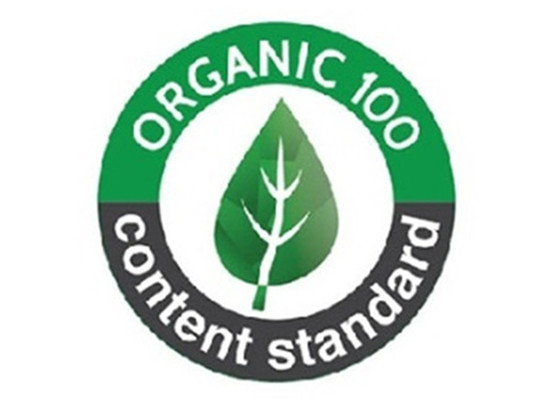[sort:name]
[sort:subname] {/pboot:sort}联系我们


TextileExchange, a non-profit organization in the United States, introduced a new organic certification standard-TheOrganicContentStandard, or OCS for short. This standard supervises the whole organic industrial chain by tracking the cultivation of organic raw materials. TextileExchange indicates that OCS will replace the existing one.
OE(OrganicExchange) blending standard. In addition, OCS will be applied to the verification of various organic planting materials, not just organic cotton.
Organic content standard certification OCS can be applied to all non-food products containing 5%-100% organic raw materials. This standard can be used to confirm the content of organic raw materials in the final product. It can be used to trace the source of raw materials to the final product, and this process is certified by a trusted third party organization. In the process of completely independent evaluation of the organic content of products, the standards will adhere to transparency and consistency. This standard can be used as a business tool between companies to help enterprises ensure that the products they buy or pay for meet their requirements.
OCS certifies any non-food products containing 5-100% organic raw materials. Such as textiles (fiber products, yarns, fabrics, clothing, etc.) and cosmetics.
Organic content standard certification OCS is a standard for tracking and verifying organic raw materials and the amount of organic raw materials in the final product. The standard provides a complete supply chain supervision system to supervise the whole process of organic raw materials from source to final product. The content of organic raw materials in products is evaluated and verified by an authorized third-party certification body in an open, transparent, comprehensive and consistent way. OCS can be used as a commercial trade tool between enterprises to ensure that enterprises purchase products containing organic raw materials as claimed. OCS standard can also be used as a statement to consumers.
OCS standards review the product flow inside and before the enterprise, from raw material verification, post-harvest processing, manufacturing, packaging and labeling, storage, operation, transportation to the seller in the final commercial trade link. Therefore, it is required that all enterprises, from the first processing after field harvest to the final commercial trade (business-to-business trade, B2B) must participate in the certification.
The organic content standard certification OCS is another widely recognized and accepted organic standard in the world besides GOTS certification. Since the promulgation of the standard, it has been widely used in the world to certify organic textiles. Organic products certified by OCS can enter major mainstream markets.
Certification object: non-food products produced with recognized organic raw materials.
Certification scope: oCS product production management.
Product requirements: contain more than 5% raw materials that meet the recognized organic standards.
Audit list to be prepared for OCS certification of organic content standard
1. OCS production management manual
2. OCS system plan
3. oCS product specification table
4. Business license
5. Tax Registration Certificate
6. Organization code
7, production flow chart
8, workshop and warehouse area plan (including machine arrangement and equipment list)
9, supplier evaluation records
10. OCS operation training record
11, OCS raw material procurement summary table
12, OCS raw material acceptance inspection records
13, oCS production risk assessment and control measures OCS production traceability record (simulation)
14. OCS cleaning record (simulation)
15. OCS sales record (simulation)
16. OCS finished product label (triazine head)
17, OCS total balance statistics OCS finished product transaction certificate (TC)
OCS certification object: non-food products produced with recognized organic raw materials.
Organic content standard certification OCS certification audit scope
1, product quality system 2, organic production layout and planning 3, organic production process risk control.
OCS audit results of organic content standard certification
OCS can be divided into two types: qualification certificate and sales certificate
2. Qualification certificate is valid for one year, and it is supervised and audited every year.
3. The sales certificate is the organic cotton certificate for each batch of products.
The difference between oCS authentication and GOTS authentication
1. OCS is only the production management of products, while GOTS does include three aspects; Product production management, environmental protection, social responsibility.
2. The authentication objects of OCS and OCS are different: the object of OCS authentication is the use of non-food products produced with recognized organic raw materials; But GOTS is limited to textiles made of organic natural fibers.
3. Different raw material requirements: OCS contains more than 5% raw materials that meet recognized organic standards; But GOTS is more strict, which requires 70% organic natural fiber, not allowed to blend, and more than 10% synthetic or regenerated fiber (sports goods can contain more than 25% synthetic or regenerated fiber), without genetically modified fiber.

TextileExchange, a non-profit organization in the United States, introduced a new organic certification standard-TheOrganicContentStandard, or OCS for short. This standard supervises the whole organic industrial chain by tracking the cultivation of organic raw materials. TextileExchange indicates that OCS will replace the existing one.
OE(OrganicExchange) blending standard. In addition, OCS will be applied to the verification of various organic planting materials, not just organic cotton.
Organic content standard certification OCS can be applied to all non-food products containing 5%-100% organic raw materials. This standard can be used to confirm the content of organic raw materials in the final product. It can be used to trace the source of raw materials to the final product, and this process is certified by a trusted third party organization. In the process of completely independent evaluation of the organic content of products, the standards will adhere to transparency and consistency. This standard can be used as a business tool between companies to help enterprises ensure that the products they buy or pay for meet their requirements.
OCS certifies any non-food products containing 5-100% organic raw materials. Such as textiles (fiber products, yarns, fabrics, clothing, etc.) and cosmetics.
Organic content standard certification OCS is a standard for tracking and verifying organic raw materials and the amount of organic raw materials in the final product. The standard provides a complete supply chain supervision system to supervise the whole process of organic raw materials from source to final product. The content of organic raw materials in products is evaluated and verified by an authorized third-party certification body in an open, transparent, comprehensive and consistent way. OCS can be used as a commercial trade tool between enterprises to ensure that enterprises purchase products containing organic raw materials as claimed. OCS standard can also be used as a statement to consumers.
OCS standards review the product flow inside and before the enterprise, from raw material verification, post-harvest processing, manufacturing, packaging and labeling, storage, operation, transportation to the seller in the final commercial trade link. Therefore, it is required that all enterprises, from the first processing after field harvest to the final commercial trade (business-to-business trade, B2B) must participate in the certification.
The organic content standard certification OCS is another widely recognized and accepted organic standard in the world besides GOTS certification. Since the promulgation of the standard, it has been widely used in the world to certify organic textiles. Organic products certified by OCS can enter major mainstream markets.
Certification object: non-food products produced with recognized organic raw materials.
Certification scope: oCS product production management.
Product requirements: contain more than 5% raw materials that meet the recognized organic standards.
Audit list to be prepared for OCS certification of organic content standard
1. OCS production management manual
2. OCS system plan
3. oCS product specification table
4. Business license
5. Tax Registration Certificate
6. Organization code
7, production flow chart
8, workshop and warehouse area plan (including machine arrangement and equipment list)
9, supplier evaluation records
10. OCS operation training record
11, OCS raw material procurement summary table
12, OCS raw material acceptance inspection records
13, oCS production risk assessment and control measures OCS production traceability record (simulation)
14. OCS cleaning record (simulation)
15. OCS sales record (simulation)
16. OCS finished product label (triazine head)
17, OCS total balance statistics OCS finished product transaction certificate (TC)
OCS certification object: non-food products produced with recognized organic raw materials.
Organic content standard certification OCS certification audit scope
1, product quality system 2, organic production layout and planning 3, organic production process risk control.
OCS audit results of organic content standard certification
OCS can be divided into two types: qualification certificate and sales certificate
2. Qualification certificate is valid for one year, and it is supervised and audited every year.
3. The sales certificate is the organic cotton certificate for each batch of products.
The difference between oCS authentication and GOTS authentication
1. OCS is only the production management of products, while GOTS does include three aspects; Product production management, environmental protection, social responsibility.
2. The authentication objects of OCS and OCS are different: the object of OCS authentication is the use of non-food products produced with recognized organic raw materials; But GOTS is limited to textiles made of organic natural fibers.
3. Different raw material requirements: OCS contains more than 5% raw materials that meet recognized organic standards; But GOTS is more strict, which requires 70% organic natural fiber, not allowed to blend, and more than 10% synthetic or regenerated fiber (sports goods can contain more than 25% synthetic or regenerated fiber), without genetically modified fiber.
 {/pboot:if}
{/pboot:if}